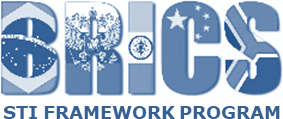Project “Monitoring and removal of antibiotics from wastewater by membrane separation”
The leader of this project and research group from India – Mr. Swachchha Majumdar
Mr. Swachchha Majumdar is a Bachelor of Technology in Membrane and Separation Technology Division of CSIR-Central Glass and Ceramics Research Institute, Kolkata, India
The Indian team from CSIR-Central Glass and Ceramic Research Institute has obtained considerable knowledge in synthesis of inorganic membranes for different filtration processes including fabrication of large multichannel membranes (1 meter length, 19 channels). There has been research investigation by the PI and concerned group of CSIR-CGCRI to examine the applicability of inorganic membranes in removal of ciprofloxacin and atrazine. This group is also working on ceramic nanofiltration membranes. Therefore, the prior expertise will be beneficial to develop selective nanofiltration membranes targeting specific groups of antibiotics with emphasis given on post COVID-19 scenario where rampant use of antibiotic has taken place.
Project “Development of membrane-based methods to improve the recovery of pure water and valuable products from the waste”

The project leader of research group from India – Sourja Ghosh.
Sourja Ghosh is a Senior Scientist in Ceramic Membrane Division of CSIR-Central Glass and Ceramics Research Institute, Kolkata, India and Assistant Professor of Academy of Scientific & Innovative Research (ACSIR).
The Indian research group will focus on developing ceramic membranes indigenously with controlled pore sizes and higher chemical resistance and process establishment using the same to improve the water recovery from wastewaters. Wastewater produced in the mining sectors are highly acidic and corrosive natured and treating such type of effluent is indeed a challenge. In this context, ceramic membranes would be favorable for recovery of water from such kind of waste streams owing to their robust characteristics. Based on the pore size and surface properties of the developed ceramic membranes, membrane-mediated extraction process would be established for recovery of selective valuable metals from mining wastewater. Further ceramic ultrafiltration and nanofiltration membranes would be developed using cost-effective raw materials for treatment of oil-contaminated water from petroleum exploration and refineries aiming to reduce the membrane fouling in emulsion removal from the oil-water emulsion. In addition, the surface of the ceramic monochannel membranes would be modified hydrophobically, and these membranes would be provided to the collaborating partners to evaluate their efficiency in membrane distillation application.
